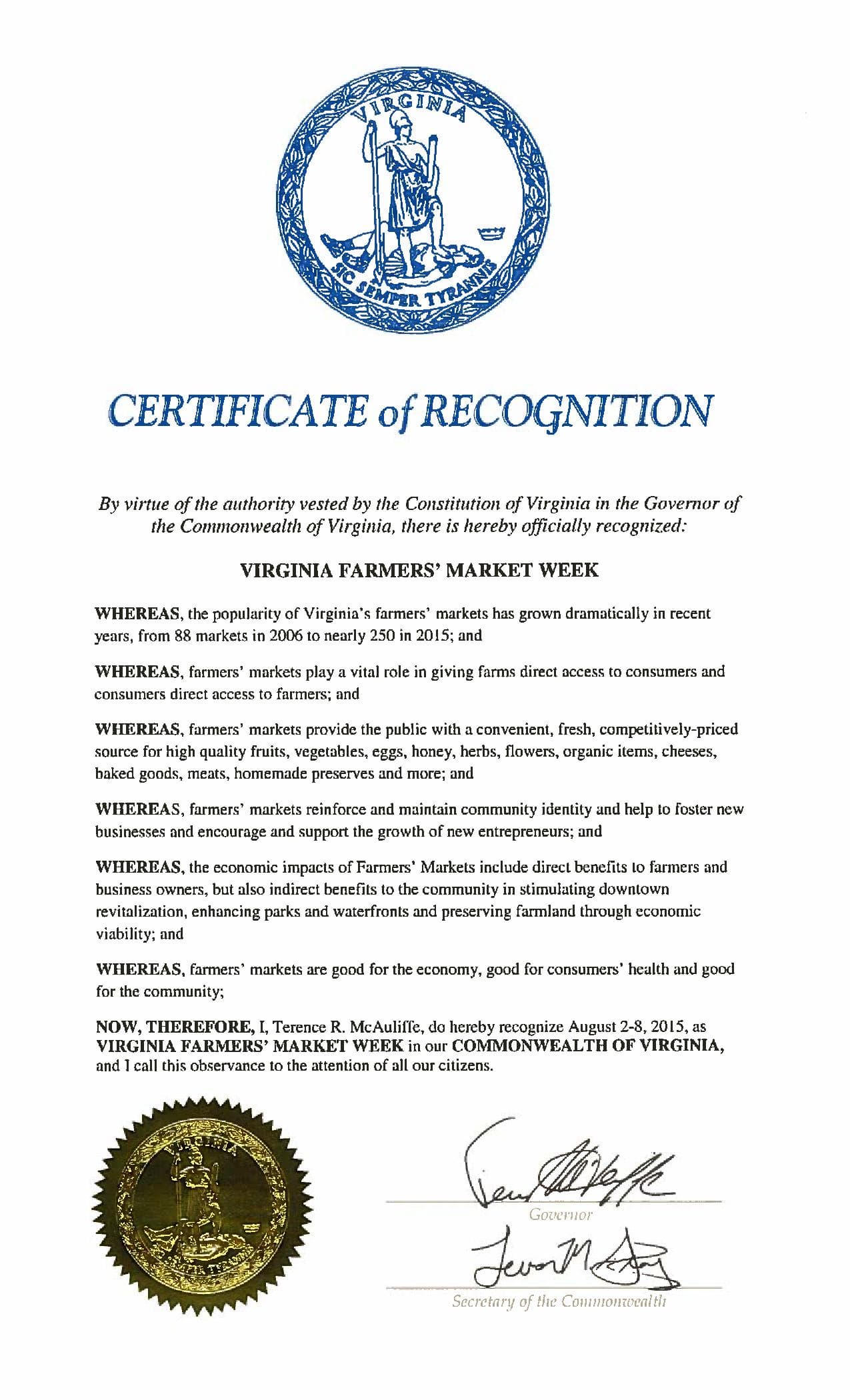Weeklong event will take place August 2nd – 8th
By Diego Flammini, Farms.com
United States Secretary of Agriculture Tom Vilsack declared Sunday, August 2nd to Saturday, August 8th as National Farmer’s Market Week. In conjunction with that, the states of Virginia and Maryland will also take part in celebrating farmers’ markets in the states and all they do for the community and economy.
“These markets play a vital role in giving Virginia farms direct access to consumers, and consumers direct access to farmers,” reads a press release put out by the Virginia Department of Agriculture. “Farmers’ markets spur economic development, foster community engagement, support local farmers and, best of all, provide fresh, nutritious food for Virginians.
Delegating the week to celebrating farmers’ markets was made official in a proclamation by Governor Terence McAuliffe. In it, he says that the number of farmers’ markets in Virginia has increased from 88 in 2006 to nearly 250 in 2015.

A list of all the farmers’ markets in Virginia can be found online.
Virginia’s top five producing crops are:
- Hay
- Soybeans
- Corn
- Tobacco
- Wheat
While only a week is being dedicated to the farmers’ markets, the entire month of August will be dedicated to peaches in Virginia.
As of July 23rd, the National Agricultural Statistics Service said the state’s peaches were about 38% harvested.
The 2012 Census of Agriculture showed that Virginia has 244 peach farms. In 2014, the state had 1,200 acres of peaches that helped produce 5,300 tons of fruit.
Looking for a farmers’ market in your state? Check out our Farmers’ Market Directory to find your closest farmers’ market.